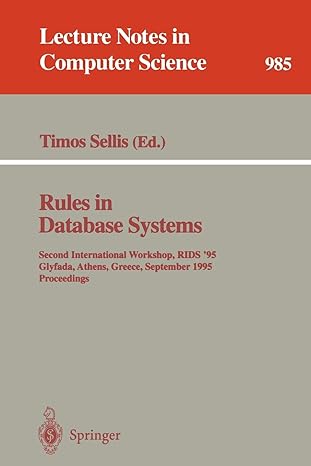Question
In each part, construct DFAs for the simpler languages, then combine them using the construction discussed in footnote 3 of page 46, (but I included
In each part, construct DFAs for the simpler languages, then combine them using the construction discussed in footnote 3 of page 46, (but I included it here to make your life easier) to give the state diagram of a DFA for the language given.
Footnote 3 of page 46: This expression (F = F1 F2) would define Ms accept states to be those for which both members of the pair are accept states. In this case, M would accept a string only if both M1 and M2 accept it, so the resulting language would be the intersection and not the union. In fact, this result proves that the class of regular languages is closed under intersection.
= {a, b}.
Draw an automaton that accept the following strings:
a) {w | w has even length}
b) {w | w has an odd number of as}
c) {w | w has even length and an odd number of as}
Step by Step Solution
There are 3 Steps involved in it
Step: 1

Get Instant Access to Expert-Tailored Solutions
See step-by-step solutions with expert insights and AI powered tools for academic success
Step: 2

Step: 3

Ace Your Homework with AI
Get the answers you need in no time with our AI-driven, step-by-step assistance
Get Started


